Routine and Nutrition

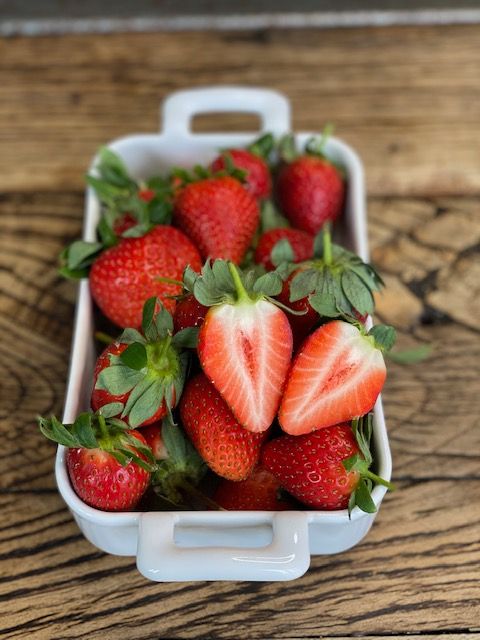
Chef Tim Bilton shares some more valuable information from his kitchen with Yorkshire Businesswoman readers:
People have noticed significant changes during lockdown, cleaner air, and the sky looking deeper blue more wildlife and stronger family and communities.
91% of Britons don’t want life to return normal after the coronavirus is over according to a YouGov survey.
Making life changes to a better way of life. More and more people are cooking from scratch to make healthy and nutritional meals for themselves and their families.
More than half value food and other essentials more since the pandemic started.
With more and more cooking from scratch. People are trying new things and noticing a massive difference at home and in their working environments and communities.
I for one have embraced this unprecedented time, just going for a simple walk around where I live and discovering the wonder that is just on our door step. (I’ve lived around here for over sixteen years and I’m quite embarrassed that I’ve never walked or seen such beauty right on my door step). This is one of the best sources of vitamin D just being out in the sunshine.
As life and work have stopped, as we knew it we all still need that motivation and routine as we stay safe and work from home. More companies have also seen a real benefit from their work force working from home and are reassessing their work life balance. Not to mention the overheads that large offices drain on companies.
How do we motivate ourselves during this time with work, family, and are we getting enough vitamins and minerals into our bodies. By having the right balance our bodies will have the energy to give us that get up and go.
We all need to take care of our wellbeing and make healthy nutritious food choices. Even when it’s difficult to buy certain foods that we used to take for granted.
Eating a rainbow of fruit and vegetables is a good way to help us get a variety of vitamins and minerals that we all need as part of a balanced diet. With the rainbow a symbol of respect for our NHS workers eating a rainbow we in turn respect our bodies also. All the different vitamins and minerals all have different functions within the body.
One of my favourite stereophonics songs Maybe Tomorrow has the lyrics “Think I’ll walk me out side and buy a rainbow smile, but be free, They’re all free.
It’s all so important that we look after ourselves during this time in lock down. Having the right balance of a healthy diet from within will also help us to radiate on the out side. You have the saying “you are what you eat” and we have all heard that we need to eat our five a day but its also important for our health and wellbeing.
Tips for healthy eating
Eat more fruit and veg – whether its 5 portions or 15, increasing your fruit and vegetable intake helps to achieve a healthy balanced diet through vitamins and minerals. Choosing a variety of types and colours can help reduce risk of deficiency in the diet and increase fibre intake.
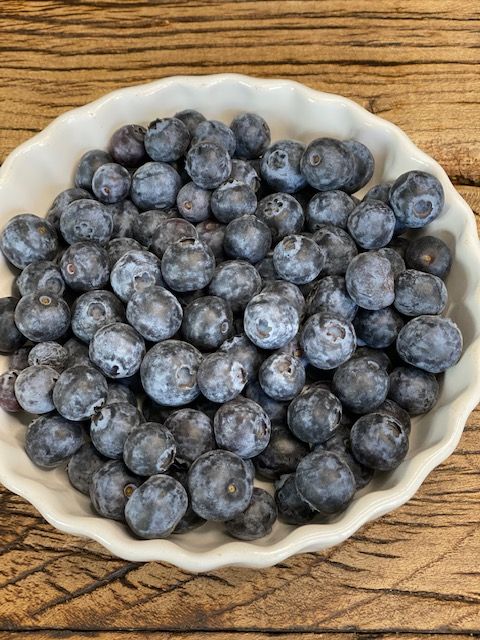
Chose wholegrain carbohydrates – around one third of your daily diet should be starchy carbohydrates. Bread, rice and pasta are all good sources of energy and choosing wholegrain varieties helps to increase your fibre intake.
Choose lean protein – whether its beans, pulses, fish, eggs or lean meat, lean protein is great for a healthy diet. Including dairy or fortified dairy alternatives in your diet is a good source of vitamins and minerals.
Aim for two portions of fish a week, with one being an oily fish such as salmon, mackerel or sardines, for your quota of heart-healthy omega 3.
Manage the amount of saturated fat, sugar and salt in your diet – choose items, which have mostly green and amber food labelling to help you.
Drink plenty – 6-8 glasses a day (around two litres) of fluid, ideally water. Or opt for sugar-free drinks, tea, coffee, herb or fruit teas, milk, and homemade smoothies
Get active every day – anything that gets your heart beating faster being active also helps improve sleep, mental health, and relieve stress.
Just some rainbow super foods and their health and nutritional benefits
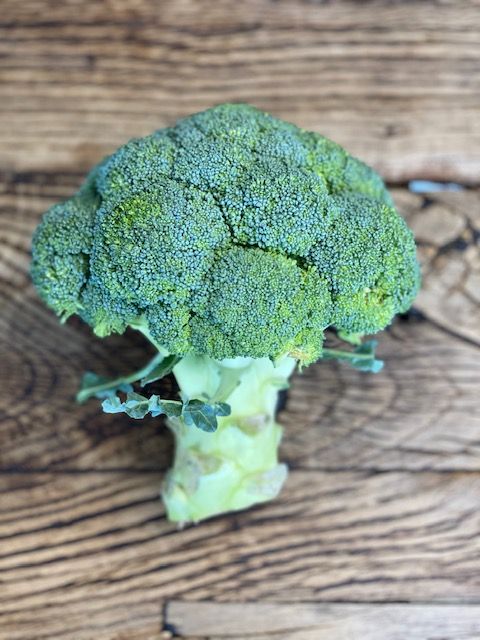
Bananas are great source of vitamin B6, which helps support the normal function of the nervous system. Try topping granary toast or Greek yoghurt with sliced bananas and a drizzle of honey
Bananas are a healthy source of fibre, potassium, vitamin B6, vitamin C, and various antioxidants and phytonutrients. Potassium has benefits for lowering blood pressure, Furthermore; bananas contain a decent amount of magnesium, which is also important for heart health.
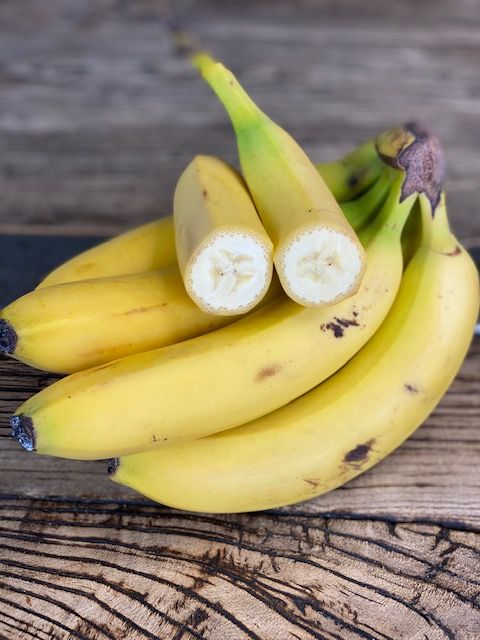
Beetroot this is such an under used vegetable brilliantly versatile boiled, pickled, roasted, or simply grated into a simple salad raw.
Packed with essential nutrients, beetroots are a great source of fibre, Folic acid (vitamin B9), manganese, potassium, iron, and vitamin C. Beetroots and beetroot juice have been associated with numerous health benefits, including improved blood flow, lower blood pressure,
Consumption of beetroots may improve running and cycling performance, increase stamina, boost oxygen use, and lead to better exercise performance overall.
I bet most of use have a juicer tucked away in the store cupboard some ware why not juice some beetroot with apple or pears and serve with ice, delicious.
Avocados are a great source of vitamins C, E, K, and B-6, as well as riboflavin, niacin, Folic acid, pantothenic acid, magnesium, and potassium. They also provide lutein, beta-carotene, and omega-3 fatty acids.
Good for the heart, sight, osteoporosis Half of an avocado provides approximately 25% of the daily recommended intake of vitamin K.
This nutrient is often overlooked, but is essential for bone health.
Improves digestion, lowers the risk of depression and is a natural detoxification.
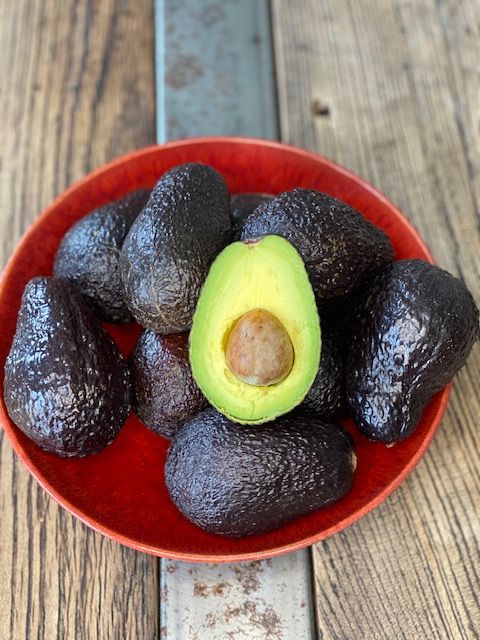
Tomatoes are the major dietary source of the antioxidant lycopene, which has been linked to many health benefits, including reduced risk of heart disease and cancer. They are also a great source of vitamin C, potassium, Folic acid, and vitamin K.
There is an enormous variety of tomatoes don’t just go for the Dutch salad tomatoes try plum on the vine, beefsteak, cherry and the green and yellow ones. Try different varieties in a simple salad with fresh basil and olive oil.
Broccoli is a branched, green vegetable with either purple or more commonly green flower buds. It belongs to the cruciferous family, along with cauliflower, cabbage and kale and it can be eaten raw or cooked, with just 80g (about 2 spears) counting as one of your five-a-day.
There have been many health claims over the years about broccoli and whether it could be labelled a 'super food' or not, but its nutrient-rich profile does offer some real health benefits.
Broccoli is a good source of fibre and protein, and contains iron, potassium, calcium, selenium and magnesium as well as the vitamins A, C, E, K and a good array of B vitamins including folic acid.
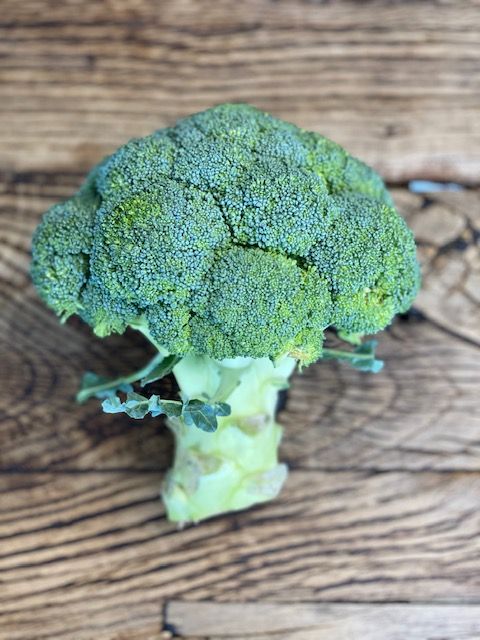
Strawberries It's difficult to resist a perfectly ripe strawberry, but did you know just how good they are for you?
Strawberries are an excellent source of vitamins C and K as well as providing a good dose of fibre, folic acid, manganese and potassium. They also contain significant amounts of phytonutrients and flavanoids which makes strawberries bright red. They have been used throughout history in a medicinal context to help with digestive ailments, teeth whitening and skin irritations. Their fibre and fructose content may help regulate blood sugar levels by slowing digestion and the fibre is thought to have a satiating effect. Leaves can be eaten raw, cooked or used to make tea.
Fruit and vegetables make a valuable contribution to a healthy balanced diet, and berries such as strawberries are especially useful. This is because they are rich in colourful pigments, which have a protective effect.
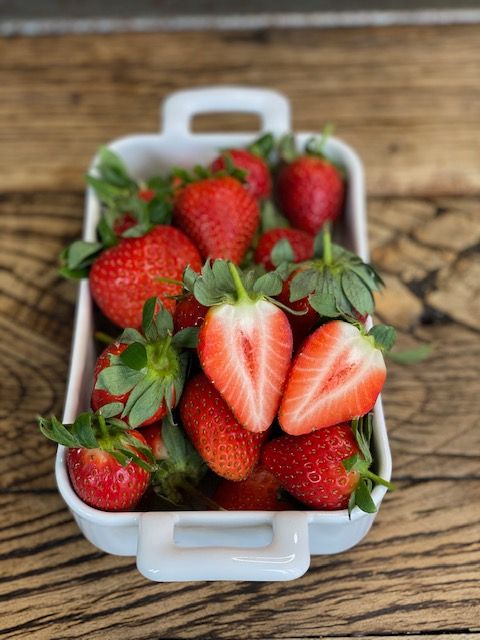
Blueberries often touted as the first super food
The fashionable blueberry is a relative newcomer to the popular fruit scene and was one of the first to be titled a ‘super food’. There are many different varieties of blueberry growing in different regions of the world. Huckleberries and bilberries are well known members of the blueberry family, native to North America.
Blueberries grow in clusters on shrubby bushes and can range in size. Some grow in the UK, but the majority of the blueberries we find in the shops will be imported. Cultivated blueberries are common and taste sweeter than those grown in the wild, which are tart. Blueberries are a deep blue-purple colour with a thin translucent skin and tiny seeds.
Below is a list of functions that these vitamins and minerals have on our bodies.
**British Nutrition Foundation **
To understand nutrition we need to know about nutrients. In this we will look at the nutrients in our food and drink and why they are important for our health. You can find information on the following:
**Nutrient recommendations by The British Nutrition Foundation **
How do we know how much of each nutrient we need at each stage of life, from birth to older age?
In the UK, we have a set of Dietary Reference Values (DRVs). These are the expert estimates of the quantities of energy and nutrients needed to support adequate growth, development and health, while reducing the risk of deficiencies and diseases like heart disease, stroke and cancer.
Macronutrients and micronutrients
Food provides us with a range of different nutrients that have roles like providing energy and/or being needed for growth and upkeep of our body.
Carbohydrate, protein and fat are macronutrients (macro means large), so these are the nutrients that we need to eat in relatively large amounts in the diet as they provide our bodies with energy and also the building blocks for growth and maintenance of the body
Vitamins and minerals are micronutrients, which are essential nutrients your body needs in small amounts to work properly. Although water is not always included in the strict definition of a nutrient, it is essential for health and life.
Carbohydrate provides energy for the body.
Can be found in all starchy foods, such as bread, rice, potatoes, pasta and breakfast cereals; but also in simpler forms as the sugars present in fruits, vegetables and milk.
Dietary fibre is a term that is used for non-digestible carbohydrates.
Fibre is important for our health and for reducing the risk of some diseases (e.g. heart disease, type 2 diabetes and colon cancer). It also helps our digestive health and reduces the risk of constipation.
High fibre breakfast cereals, wholegrain bread, whole wheat pasta, beans, pulses, fruit and vegetables.
Protein provides amino acids, some of which we can’t make ourselves and so need to get from our diet. Needed for normal growth and maintenance of health. Also provides energy. Meat, fish, eggs, dairy foods, cereal products (such as bread), soya products, nuts and pulses.
Fat provides essential fatty acids (that we can’t make ourselves but need in small amounts) as well as energy. Required for a range of bodily processes and to maintain the normal structure of cells in the body. It also carries essential fat-soluble vitamins and is important for their absorption.
Fats and oils, meat and meat products, dairy foods, oily fish, nuts, seeds and avocados.
B vitamins, Folic acid and vitamin C (water-soluble vitamins)
Water-soluble vitamins cannot be stored in our bodies. If you have more than you need, your body gets rid of the extra vitamins when you urinate. These include vitamin B1, vitamin B2, vitamin B3, vitamin B6, vitamin B12, Folic acid and vitamin C.
**Vitamin B1 **
(Thiamin)
Helps to release energy from food. It also helps our nervous system and heart function normally.
Bread, fortified breakfast cereals, nuts and seeds, meat (especially pork), beans and peas.
Vitamin B2
(Riboflavin)
Helps to release energy from food and helps maintain normal skin.
It helps to maintain a normal nervous system and helps to reduce tiredness.
Milk and milk products, eggs, fortified breakfast cereals, offal, some oily fish (e.g. mackerel and sardines), mushrooms and almonds.
Vitamin B3
(Niacin)
Helps to release energy from food and helps to maintain normal skin. It also helps the nervous system function normally and helps reduce tiredness.
Meat, poultry, fish, fortified breakfast cereals, egg yolk, yeast extract, soya beans, sesame seeds, some fruit and vegetables (e.g. banana, avocado and green pepper).
Vitamin B6
Helps to make red blood cells, which carry oxygen around the body. It helps our immune system work as it should, regulates hormones and helps to reduce tiredness.
Meat, poultry, fish, fortified breakfast cereals, egg yolk, yeast extract, soya beans, sesame seeds, some fruit and vegetables (e.g. banana, avocado and green pepper).
Vitamin B12
Helps to make red blood cells, which carry oxygen around the body, and helps the nervous system function normally. Helps keep our immune system working, as it should and helps to reduce tiredness.
Meat, fish, shellfish, milk, cheese, fromage frais, eggs, fortified yeast extract and fortified breakfast cereals.
Folic acid
Helps to make red blood cells, which carry oxygen around the body. Helps the immune system work as it should and helps to reduce tiredness. It is also needed for the normal development of the nervous system in unborn babies.
Green leafy vegetables, some breads (e.g. malted wheat and brown bread), offal, peas and beans, oranges, berries and fortified breakfast cereals.
Vitamin C
Helps to protect cells from damage. Helps with the formation of collagen, which is important for normal bones, gums, teeth and skin. It also helps the immune system work as it should and the nervous system to function normally.
Fruit (especially citrus fruits, blackcurrants, strawberries, papaya and kiwi), green vegetables, peppers and tomatoes.
Vitamins A, D, E and K (fat-soluble vitamins)
Fat-soluble vitamins are absorbed through the gut with the help of fat. These include vitamin A, vitamin D, vitamin E and vitamin K.
Vitamin A
Helps the immune system to work, as it should. It also helps with vision and helps keep skin and the linings of some parts of the body, such as the nose, function normally.
Liver, cheese, eggs, dark green leafy vegetables and orange-coloured fruits and vegetables (e.g. carrot, sweet potato, butternut squash, cantaloupe melon and papaya).
Vitamin D
Helps the body to absorb calcium and helps to keep bones strong. It also helps muscles to function normally and the immune system to work, as it should.
Oily fish, eggs, fortified breakfast cereals and fat spreads. In summer, the majority of people will get most of their vitamin D through the action of sunlight on the skin. For more information on the dietary sources of vitamin D
Vitamin E
Helps to protect the cells in our bodies against damage.
Vegetable and seed oils (e.g. olive, rapeseed, sunflower, peanut oils) nuts and seeds (e.g. sunflower seeds and almonds), avocados and olives.
Vitamin K
Needed for the normal clotting of blood and is required for normal bone structure.
Green vegetables (including leafy greens, broccoli, green beans and peas) and some oils (e.g. rapeseed, olive and soya oil).
Minerals (calcium, sodium, potassium, iron, magnesium, zinc, iodine, selenium, phosphorus and fluoride)
There are certain minerals we need to keep our bodies healthy. These include calcium, fluoride, iodine, iron, magnesium, phosphorous, potassium, selenium, sodium and zinc.
Calcium
Helps to build and maintain strong bones and teeth, as well as the normal functioning of nerves and muscles. It also helps blood clot normally.
Milk, cheese, yogurt, fromage frais, some green leafy vegetables (such as kale), calcium-fortified dairy-alternatives, canned fish (where soft bones are eaten) and breads (white, brown and wholegrain). For more information on the dietary sources of calcium
Fluoride
Helps with the formation of strong teeth and helps to reduce the risk of tooth decay.
Tap water, tea (and toothpaste).
Iodine
Helps to make thyroid hormones. It also helps the brain to function normally.
Milk, yogurt, cheese, fish, shellfish and eggs.
Iron
Helps to make red blood cells, which carry oxygen around the body. It also helps the immune system to work as it should and helps the brain to function normally.
Offal, red meat, beans, pulses, nuts and seeds, fish (e.g. canned sardines, cockles and mussels), quinoa, wholemeal bread and dried fruit.
Magnesium
Helps to release energy from food. It also helps to maintain strong bones and helps muscles and nerves to function normally.
Nuts and seeds (e.g. Brazil nuts and sunflower seeds), wholegrain breakfast cereals, wholegrain and seeded breads, brown rice and quinoa.
Phosphorous
Helps to build strong bones and teeth and helps to release energy from food.
Red meat, poultry, fish, milk, cheese, yogurt, eggs, bread and whole grains (such as brown rice and whole wheat pasta).
Potassium
Helps regulate the water content in the body and maintain a normal blood pressure. It also helps the nerves and muscles function normally.
Some fruit and vegetables (e.g. banana, blackcurrants, avocado, spinach, parsnip and beetroot), dried fruit (e.g. apricots, sultanas and figs), poultry, red meat, fish, milk and wholegrain breakfast cereals.
Sodium
Helps regulate the water content in the body.
Very small amounts found naturally in foods. Often added as salt (sodium chloride) during processing, preparation, preservation and serving. Currently intakes of sodium are too high and most people need to reduce their intake substantially.
Selenium
Helps to protect the cells in our bodies against damage. It also helps the immune system to work as it should, helps maintain normal skin and nails and normal fertility in males.
Some nuts and seeds (e.g. Brazil nuts, cashews and sunflower seeds), eggs, offal poultry, fish and shellfish.
Zinc
Contributes to normal mental skills and abilities and helps to maintain normal hair, skin and nails. It also helps with the normal healing of wounds and contributes to normal fertility and reproduction.
Meat, poultry, cheese, some shellfish (e.g. crab, cockles and mussels), nuts and seeds (e.g. pumpkin seeds and pine nuts), wholegrain breakfast cereals and wholegrain and seeded breads.
Water
Not defined as a nutrient in the classical sense, but is essential for our bodies to work properly, for example for regulating body temperature, transporting nutrients around the body and for normal brain function.
All drinks including water, milk, fruit juice, tea and coffee. We actually get roughly 20% of our water requirements from the food we eat. Water-rich foods include fruit and vegetables, soups, stews and sauces.
Stay safe everyone. X
Tim Bilton, Chef.